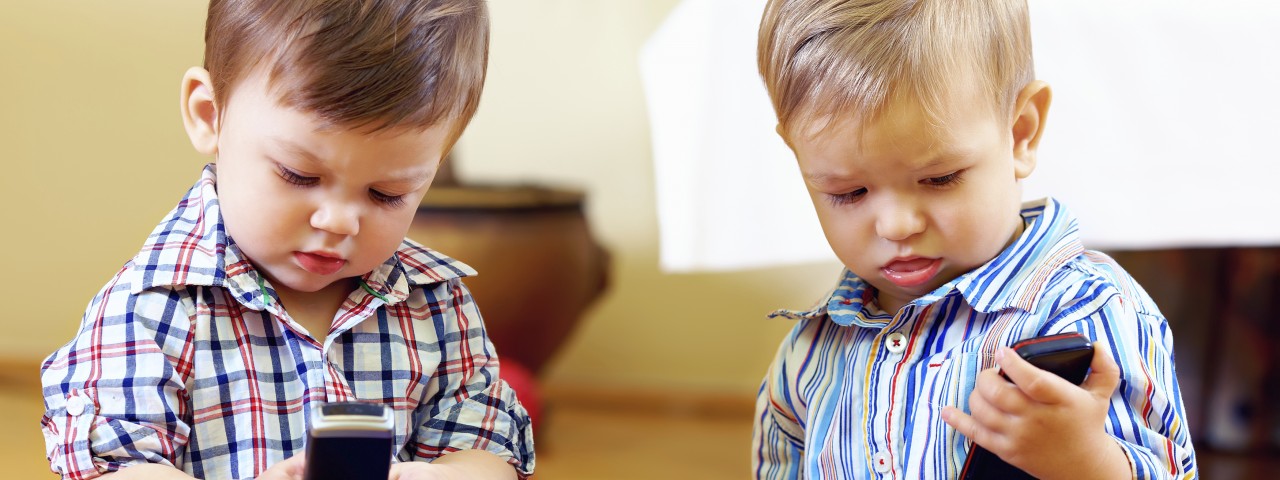Look Who's Networking
- Tweet

From the moment your child is born, he is learning about the world around him. His brain is processing new information faster than at any other age. Years before he starts kindergarten, he is a voracious student. From day one he’s learning cognitive skills that will soon help him understand words and gestures. But he’s also observing how other people in his world act and interact, and learning important lessons about how to manage his own emotions and how to navigate the social network in which we all participate.
Children learn about social and emotional behavior from seemingly simple activities! Tweet this!For babies and toddlers, the social world consists mainly of their parents or other primary caregivers. The social and emotional skills a baby learns from you during these early years are just as important for healthy development as cognitive abilities.
Babies Learn Social and Emotional Skills from Parents
Preparing your child socially and emotionally is an important part of kindergarten readiness, ensuring that he starts school with the skills required to learn in a classroom setting. Because parents and caregivers are a child’s first teachers, this early foundation of good social and emotional behavior begins with us.
If you’ve spent much time in the pages of our website, you’ve certainly come across the phrase TTRP. This is a powerful set of tools that gives us parents more or less all we need to guide our children to a successful, productive and happy life. The best part is, using these tactics is easy and fun. Children benefit from regular Touch, Talk, Read and Play interactions with the adults in their lives, and they learn about social and emotional behavior from these seemingly simple activities.
Experiences Lay Foundations of Emotional and Social Development
Beginning in infancy, loving and regular Touch is important for healthy development. This loving act of parental guidance begins seconds after birth, when a baby is placed into the extended arms of his new family. Physical contact can reduce infant stress and increase positive emotions. By promoting a baby’s sense of safety and security, it helps strengthen the foundation for later social and emotional development.
Talk begins with tiny words whispered into a tinier ear. Children enter the world eager to communicate. Even before they understand the meanings of words or begin producing words themselves, they are learning by listening. And it’s not just early language skills they’re learning. Talk is an essential component of sensitive and responsive parenting that promotes babies’ emotional bonds with their parents and makes them feel nurtured and safe.
Not long after getting home from the hospital with your brand new little one, you’ll sit down with him and begin to Read. You’ll likely start with simple books like Goodnight Moon and Pat the Bunny and over the years move into Maurice Sendak and then on into J.K. Rowling and beyond. Books are a great venue for learning, but also a great opportunity to make time for the kind of warm one-on-one interactions that promote social and emotional adjustment.
Before your baby can even roll himself over, you’re sure to be down on his level, covered in drool, engaging in some good old goofy
Play . Playful interactions with parents and caregivers teach a baby emotional, behavioral and social skills. As he grows into toddlerhood, play allows him to explore and master his environment. Play has been linked to later confidence and resiliency.While you know how to model good behavior to your children, it’s important to keep in mind that you’re teaching them even when you’re not directly interacting. They learn from how you handle disagreements, how you spend your time, and how you treat others.
Your child thinks the world of you. What you do, they will aspire to mirror back. Show them the best person that you are capable of being, and you’ll be amazed what they will achieve.
